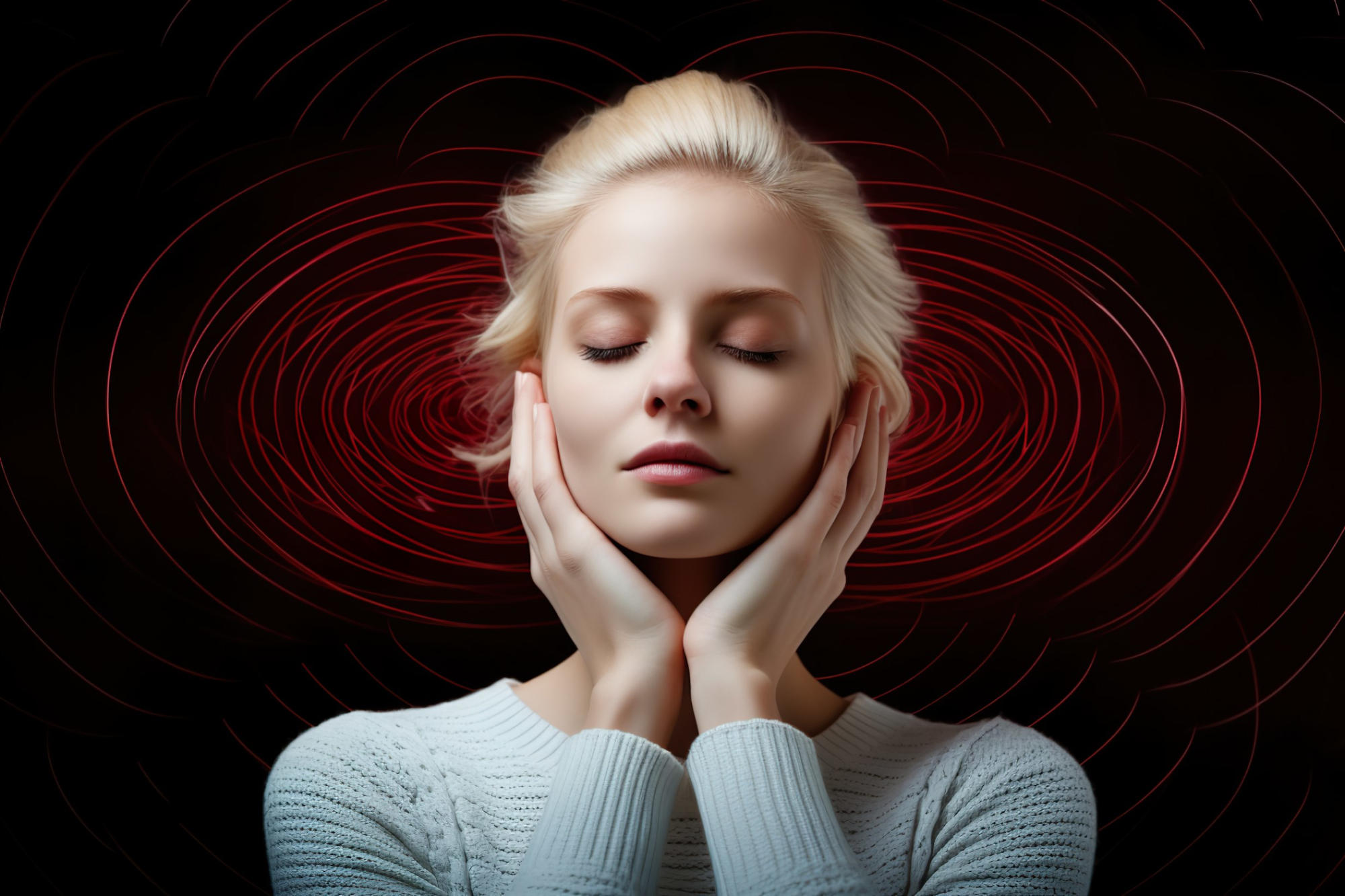
Một nghiên cứu của Đại học Michigan đã phát hiện ra rằng kích thích hai giác quan được cá nhân hóa, kết hợp phổ ù tai của từng cá nhân với kích thích điện, có thể làm giảm đáng kể các triệu chứng ù tai và cải thiện chất lượng cuộc sống. Phương pháp này, sẽ được tiếp thị bởi Auricle Inc. Hy vọng mới điều trị hiệu quả cho hàng triệu người ù tai
Thiết bị trị liệu sáng tạo mới xử lý tiếng rít của sự im lặng.
Chứng ù tai, là tiếng chuông, ù hoặc tiếng rít trong im lặng, có mức độ nghiêm trọng từ khó chịu nhẹ đối với một số người đến vô hiệu nghiêm trọng đối với những người khác. Tại Hoa Kỳ, có tới 15% người trưởng thành bị ù tai, với khoảng 40% trong số này mắc bệnh mãn tính và tích cực tìm cách điều trị để giảm bớt.
Một nghiên cứu mới đầy hứa hẹn của các nhà khoa học tại Viện Nghiên cứu Thính giác Kresge tại Đại học Michigan cho thấy rằng việc giảm đau như vậy là có thể đạt được.
Susan Shore, Tiến sĩ, Giáo sư Emrita tại Khoa Tai mũi họng Michigan và Khoa Sinh lý học và Kỹ thuật Y sinh tại Đại học Michigan, đã dẫn đầu nghiên cứu về cách não xử lý thông tin cảm giác và cách khai thác các quá trình đó để kích thích cá nhân hóa và điều trị ù tai.
Phát hiện của nhóm của cô đã được xuất bản trong
According to Shore, candidates with bothersome, somatic tinnitus, as well as normal-to-moderate hearing loss, were eligible to participate.
“After enrollment, participants received a portable device developed and manufactured by in2being, LLC, for in-home use,” she said. “The devices were programmed to present each participant’s personal tinnitus spectrum, which was combined with electrical stimulation to form a bi-sensory stimulus, while maintaining participant and study team blinding.”
Study participants were randomly assigned to one of two groups. The first group received bi-sensory, or active, treatment first, while the second received sound-alone, or control, treatment.
For the first six weeks, participants were instructed to use their devices for 30 minutes each day. The next six weeks gave participants a break from daily use, followed by six more weeks of the treatment not received in the beginning of the study.
Shore notes that every week, participants completed the Tinnitus Functional Index, or TFI, and Tinnitus Handicap Inventory, or THI, which are questionnaires that measure the impact tinnitus has on individuals’ lives. Participants also had their tinnitus loudness assessed during this time.
The team found that when participants received the bi-sensory treatment, they consistently reported improved quality of life, lower handicap scores, and significant reductions in tinnitus loudness. However, these effects were not seen when receiving sound-only stimulation.
Further, more than 60% of participants reported significantly reduced tinnitus symptoms after the six weeks of active treatment, but not control treatment. This is consistent with an earlier study by Shore’s team, which showed that the longer participants received active treatment, the greater the reduction in their tinnitus symptoms.
“This study paves the way for the use of personalized, bi-sensory stimulation as an effective treatment for tinnitus, providing hope for millions of tinnitus sufferers,” said Shore.
Reference: “Reversing Synchronized Brain Circuits Using Targeted Auditory-Somatosensory Stimulation to Treat Phantom Percepts – A Randomized Clinical Trial” by Gerilyn R. Jones, David T. Martel, Travis L. Riffle, Josh Errickson, Jacqueline R. Souter, Gregory J. Basura, Emily Stucken, Kara C. Schvartz-Leyzac and Susan E. Shore, 2 June 2023, JAMA Network Open.
DOI: 10.1001/jamanetworkopen.2023.15914
The study was funded by the National Institute of Mental Health, the National Institute on Deafness and Other Communication Disorders.
Auricle Inc., the exclusive licensee of the patents related to the bi-sensory stimulation, was launched with the help of Innovation Partnerships, the central hub of research commercialization activity at the University of Michigan. Auricle will work towards gaining regulatory clearance and then commercializing Shore’s novel bi-sensory tinnitus treatment.
To stay up to date on the team’s progress, sign up for updates by sending an email to [email protected].
“Nhà phân tích. Con mọt sách thịt xông khói đáng yêu. Doanh nhân. Nhà văn tận tâm. Ninja rượu từng đoạt giải thưởng. Một độc giả quyến rũ một cách tinh tế.”
